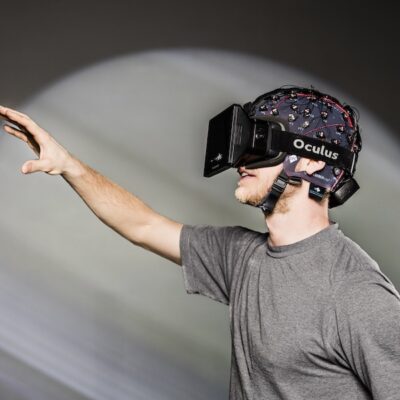New tools for embracing AI
New Zealand tech company Auror has released a free AI framework to help Kiwi businesses embrace the game-changing technology. A recent survey by Auror and Talbot Mills has revealed more […]
New Zealand tech company Auror has released a free AI framework to help Kiwi businesses embrace the game-changing technology.
A recent survey by Auror and Talbot Mills has revealed more than 40 percent of New Zealanders consider artificial intelligence as a force for good, yet only 18 percent believe businesses are well placed to harness its potential.
To help businesses harness AI responsibly, New Zealand tech company Auror has released its open-source Responsible Technology and AI Framework. The easy-to-use tools within the framework have been designed by Auror for businesses of all sizes to develop their own robust and ethical AI processes.
The Attitudes to AI survey, commissioned by Auror, showed New Zealanders are most excited about AI’s potential to stop crime (78 percent) and improve healthcare (76 percent), but there was a clear gap between its potential uses and how prepared businesses are to embrace this technology.
Phil Thomson, Auror co-founder and CEO says, as a nation, New Zealand is in its infancy in terms of regulation and governance around AI, hence the critical need for a framework to help businesses establish responsible AI processes. In the development of its crime reporting software, Auror has been through its own journey to ensure the platform’s use of AI reflects global best practice. Auror is now using its experience to pave the way for other businesses.
“When building our own understanding of responsible AI, we struggled to find resources that were practical and simple to follow. The businesses we interact with were reporting the same issue. We felt a duty to share the framework we have developed to help other businesses, regardless of size or sector, harness the power of AI, while ensuring they’re thinking about the impacts this technology can have on the users, the wider community, and their own business,” says Thomson.
Auror’s framework is free and easy for anyone, from any industry, to use. The key component of the framework is a lean canvas with simple steps to enable businesses to consider their own ethical AI processes. The lean canvas is short and sharp, and can be completed in as little as 60 minutes.
The lean canvas is supported by:
- An impact assessment (IA) guide (including an editable version) that organisations can use to assess the AI technologies they plan to use, ethical considerations, potential risks, and proposed mitigations and controls.
- A Responsible Tech and AI overview to help guide businesses through the process.
The Attitudes to AI survey also revealed that when it comes to the impacts of AI, New Zealanders are most concerned about the potential privacy risks it poses.
“We’re a privacy-first business,” says Thomson. “We want to change the narrative of privacy being a risk factor, to an opportunity for innovation. Our framework is designed to help organisations develop, deploy, and manage tech and AI systems in a manner that prioritises ethical considerations like privacy, as well as transparency, diversity, fairness, and accountability.
“In a world of constant technological advancements, new technology and AI has emerged as a game-changer across industries. So now, the job is for businesses to distinguish themselves by how responsibly they use it within their communities,” he adds. “Our new Responsible Technology and AI Framework will help New Zealand organisations lead the way in setting robust ethical AI standards that address the factors Kiwis are most concerned about.”
To access Auror’s Responsible Technology and AI Framework visit: https://www.auror.co/responsible-ai
The Talbot Mills Attitudes to AI nationwide survey, commissioned by Auror, was conducted between July 31 and August 9, 2023.
Photo: Auror co-founders: (L-R) Tom Batterbury, Phil Thomson and James Corbett.






